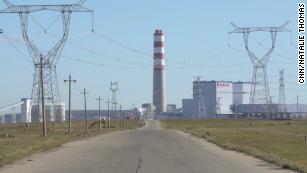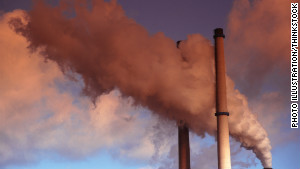문재인정권 출범 첫날부터 발표한 정책은 "탈원전"을 실시하고,대체 에너지 소스로 "태양광설치, Wind Mill설치, LNG가스 Burning Plant건설을 추진하고, 가동중에 있는 원자력 발전소의 수명연장을 반대하고, 건설중에 있는 원자력 발전소를 폐쇄한다"였었다.
문재인 정부의 탈원전 정책 발표가있은, 그날로 부터 불과 2년 반정도가 지난 오늘 아침 CNN뉴스는 이번 겨울을 무사히 나기위해, 문재인 정부는 현재 가동중에 있는 화력 발정소의 40%을 12월부터 내년도 2월말까지, 3개월간 가동중지한다. 이유는 미세먼지의 증가로 시민들의 호흡기 건강에 위험신호가 높아졌기 때문이라고 했다.
한반도의 5천만 국민들을, 2천5백만 북한주민들까지 합하면 7천5백만 국민들의 건강을 해치는, 원흉은 원자력 발전도 아니고, 공장의 매연, 차량배기통에서 나오는 매연도 아니고, 주범은 바로 중국에서 불법적으로 뿜어내서, 한반도에 토해내는 미세먼지이다.
원자력 발전소에서 나오는 매연에 대해서는 한마디의 언급이 없었다. 그만큼 깨끗하다는 논리다. 한국전력의 Engineer들의 양심도 큰 문제다. 탈원전은 안된다라고 처음부터 목소리를 냈어야 했다.

PM 2.5 are microscopic particles smaller than 2.5 micrometers in diameter which are considered particularly harmful to humans because they are small enough to lodge deep into the lungs and pass into other organs.
화력발전 출력도 상시 제한
https://www.cnn.com/2019/11/29/asia/south-korea-coal-plants-pollution-intl-hnk/index.html
https://www.mk.co.kr/news/economy/view/2019/11/995099/
문재인 정부의 탈원전 정책 발표가있은, 그날로 부터 불과 2년 반정도가 지난 오늘 아침 CNN뉴스는 이번 겨울을 무사히 나기위해, 문재인 정부는 현재 가동중에 있는 화력 발정소의 40%을 12월부터 내년도 2월말까지, 3개월간 가동중지한다. 이유는 미세먼지의 증가로 시민들의 호흡기 건강에 위험신호가 높아졌기 때문이라고 했다.
한반도의 5천만 국민들을, 2천5백만 북한주민들까지 합하면 7천5백만 국민들의 건강을 해치는, 원흉은 원자력 발전도 아니고, 공장의 매연, 차량배기통에서 나오는 매연도 아니고, 주범은 바로 중국에서 불법적으로 뿜어내서, 한반도에 토해내는 미세먼지이다.
원자력 발전소에서 나오는 매연에 대해서는 한마디의 언급이 없었다. 그만큼 깨끗하다는 논리다. 한국전력의 Engineer들의 양심도 큰 문제다. 탈원전은 안된다라고 처음부터 목소리를 냈어야 했다.
한국의 공기오염의 주범은 공장굴뚝에서 나오는 매연, 자동차에 뿜어 나오는 매연, 그리고 가장 큰 원인은 황해 바다건너 중국의 해안 지역에 있는 수많은 공장과 차량들이 뿜어내는 매연이 동풍을 타고 한반도로 날아와서 강타하기 때문이다.
겨울철에는 에너지 소비가 갑절로 뛰는데, 가동중지를 하면, 결과는 어떻게 될까? 현재 한국에는 58개의 화력발전소가 검은 연기를 뿜어대고 있다. 한국의 전력생산량의 46%를 석탄을 태우는 화력발전이 담당하고있다는 통계는 한국전력에서 나온 수치다.
문재인 정권이 가장 심혈을 기울이는 "태양광 발전"은 그들에게는 마치 꿀단지를 품고있는 격이 되고있다. 태양광발전건설업체들은 거의가 다 문재인 청와대와 끄나풀이 연결된자들이라고 하는것 까지는 이해 하겠다 치자. 태양광판의 소재는 금속오염물질 덩어리들이란다. 몇년 사용된후 이들이 페기처분 됐을때, 그피해는 앞으로 수백년간 한반도의 국민들의 건강을 헤치는 주범 일호가 될것이라는 전문가들의 걱정이다.
그위에 태양광판 설치를 한답시고, 푸른 강산을 다 파헤져, 어느 지방에서는 Monson시즌에는 빗물이 홍수로 번해 하천을 덮쳐 농작물을 작살내고, 공장지대와 유락시설 그리고 농토로 사용할려고 지정해 두었던 새만금의 옥토를, 문정권은 지금 태양관발전을 하기위해 전부 파헤치고 있는 현실을 과연 어떻게 이해해야 할까? 그는 과연 대한민국의 대통령일까?
문재인 정권에게 또한번 묻고싶다.
이에 대해서는 문재인 정부와 그일당은 중국에 대해 한마디의 불평이나 언급도 없다. 마치 김정은이가 핵무기와 대륙간 탄도미사일을 불법적으로 쏘아내고, 더 현금을 많이 바치라고 공갈치는데도,한마디 경고를 못하고 대신 위협에 떨고있는 것과, 똑같은 식이다.
국가 안보는 이미 뚝이 무너졌지만, 추운겨울을 견디어 내는데 미세먼지 때문에 화력발전소 가동을 중지한다는 소식에는 억장이 무너진다. 제한송전이 뒤따르지 않을까?걱정이다.
당장에라도 탈원전 정책을 원위치로 돌리고, 중단됐던 원자력 발전소 건설을 추진하여, 5천만 국민들이 겨울, 여름 가리지 않고 필요에 따라, 냉난방을 편하게 생활에 이용할수 있도록 하고 기업들이 맘놓고 수출품생산에 매진할수 있도록 하라. 정신 이상자가 아니라면, 에너지 정책의 잘못을 인정하고 실천에 옮겨야 한다.
아래는 CNN의 보도 내용이다.
겨울철에는 에너지 소비가 갑절로 뛰는데, 가동중지를 하면, 결과는 어떻게 될까? 현재 한국에는 58개의 화력발전소가 검은 연기를 뿜어대고 있다. 한국의 전력생산량의 46%를 석탄을 태우는 화력발전이 담당하고있다는 통계는 한국전력에서 나온 수치다.
문재인 정권이 가장 심혈을 기울이는 "태양광 발전"은 그들에게는 마치 꿀단지를 품고있는 격이 되고있다. 태양광발전건설업체들은 거의가 다 문재인 청와대와 끄나풀이 연결된자들이라고 하는것 까지는 이해 하겠다 치자. 태양광판의 소재는 금속오염물질 덩어리들이란다. 몇년 사용된후 이들이 페기처분 됐을때, 그피해는 앞으로 수백년간 한반도의 국민들의 건강을 헤치는 주범 일호가 될것이라는 전문가들의 걱정이다.
그위에 태양광판 설치를 한답시고, 푸른 강산을 다 파헤져, 어느 지방에서는 Monson시즌에는 빗물이 홍수로 번해 하천을 덮쳐 농작물을 작살내고, 공장지대와 유락시설 그리고 농토로 사용할려고 지정해 두었던 새만금의 옥토를, 문정권은 지금 태양관발전을 하기위해 전부 파헤치고 있는 현실을 과연 어떻게 이해해야 할까? 그는 과연 대한민국의 대통령일까?
문재인 정권에게 또한번 묻고싶다.
이에 대해서는 문재인 정부와 그일당은 중국에 대해 한마디의 불평이나 언급도 없다. 마치 김정은이가 핵무기와 대륙간 탄도미사일을 불법적으로 쏘아내고, 더 현금을 많이 바치라고 공갈치는데도,한마디 경고를 못하고 대신 위협에 떨고있는 것과, 똑같은 식이다.
국가 안보는 이미 뚝이 무너졌지만, 추운겨울을 견디어 내는데 미세먼지 때문에 화력발전소 가동을 중지한다는 소식에는 억장이 무너진다. 제한송전이 뒤따르지 않을까?걱정이다.
당장에라도 탈원전 정책을 원위치로 돌리고, 중단됐던 원자력 발전소 건설을 추진하여, 5천만 국민들이 겨울, 여름 가리지 않고 필요에 따라, 냉난방을 편하게 생활에 이용할수 있도록 하고 기업들이 맘놓고 수출품생산에 매진할수 있도록 하라. 정신 이상자가 아니라면, 에너지 정책의 잘못을 인정하고 실천에 옮겨야 한다.
아래는 CNN의 보도 내용이다.
South Korea's plan to triple renewable energy 02:26
(CNN)South Korea will shut down up to a quarter of its coal-fired generators for three months this winter in an effort to curb air pollution.
The
country's Ministry of Trade, Industry and Energy said Thursday that
between eight and 15 generators will close from December 1 to February
29, with the remainder operating at a maximum 80% capacity.
There
are 13 coal plants in South Korea, according to the Korea Power
Exchange, and there can be multiple generators within one plant
It
will be the first time South Korea has closed coal-fired generators
during winter -- when demand for electricity is at its highest -- and
the ministry said the move would reduce fine dust emissions by 44% from
last year.
Dirty air is
a serious problem in South Korea. In March, the government declared air
pollution a "social disaster" and passed a set of bills to tackle the
issue after seven cities experienced record-high concentrations of
harmful PM 2.5 particles, according to Reuters.

PM 2.5 are microscopic particles smaller than 2.5 micrometers in diameter which are considered particularly harmful to humans because they are small enough to lodge deep into the lungs and pass into other organs.
South Korea's air quality ranks among the worst of
Organization for Economic Cooperation and Development (OECD) countries,
with some of the highest levels of particulate matter pollution.
While
pollution in South Korea is being driven by factors such as factories,
car exhausts and coal heating, many in the country blame emissions blown
across the Yellow Sea from China for exacerbating poor air quality.
South Korea has 58 publicly owned coal-fired
generators. A total of 46% of the country's energy is generated from
coal, according to the largest electric utility, Korea Electric Power
Corporation.
The
South Korean government has pledged to move away from coal as public
anger over increasingly hazardous levels of pollution grows.
Just 2% of the country's energy sector is currently renewable, the International Energy Agency told CNN in March. But the government has promised to boost renewable energy to 20% by 2030.
The government has also stopped construction of new coal plants and said it would shut down 10 aging coal plants in the country by 2022.
But South Korea also invests more than $1 billion per year in overseas coal-fired power, according to a recent report on coal subsidies among G20 nations.
This week, Greenpeace claimed
that South Korea's financing of foreign coal plants was projected to
cause 47,000 to 151,000 premature deaths over 30 years in countries
including Vietnam, Indonesia and Bangladesh.
겨울철 석탄화력 8~15기 중단
화력발전 출력도 상시 제한
미세먼지 감축 효과 있지만
전력수급 우려, 요금인상 압박 커질듯
요금인상은 내년 상반기에서야 검토
https://www.cnn.com/2019/11/29/asia/south-korea-coal-plants-pollution-intl-hnk/index.html
https://www.mk.co.kr/news/economy/view/2019/11/995099/


No comments:
Post a Comment